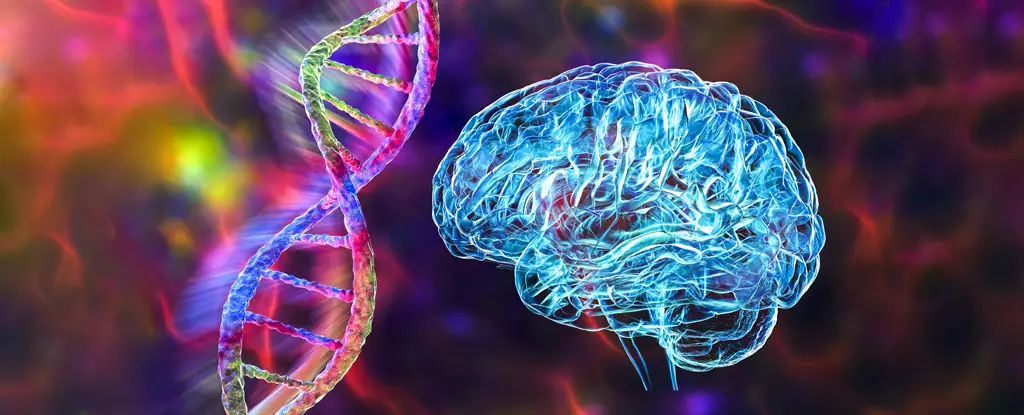Recent advances in psychiatric research have illuminated the complex genetic underpinnings shared by multiple mental health conditions. Identifying a common genetic basis among eight psychiatric disorders, including autism, ADHD, schizophrenia, and bipolar disorder, gives researchers a new perspective on how these conditions interrelate. By delving deeper into the genetic variants that these disorders share, scientists hope to uncover potential crossover treatments and enhance our understanding of brain functionality across various developmental stages.
The exploration of these shared genetic variants has uncovered compelling data indicating their prolonged activity during critical periods of brain development. This delay in activity could lead to widespread implications across multiple psychiatric conditions, suggesting these genetic pathways might serve as promising targets for treatment strategies. As explained by Hyejung Won, a geneticist at the University of North Carolina, the proteins produced by these genes play a crucial role in interconnected protein networks. Disruptions in these networks may lead to a cascade of effects throughout the brain, which complicates the clinical picture of psychiatric disorders.
A significant focus of recent studies is the notion of pleiotropy—where a single genetic variant may influence multiple traits or disorders. The 2019 study that identified 109 genes has set the groundwork for this investigation, revealing how overlapping genetic factors might be responsible for the co-occurrence of symptoms across different psychiatric conditions. For instance, those diagnosed with autism often experience symptoms associated with ADHD; the close genetic ties between the two could explain this phenomenon. The researchers observed that up to 70 percent of individuals with one condition also exhibit traits of another, highlighting the intertwined nature of these disorders.
While examining the broader landscape of genetic variants, scientists also recognized unique genes associated exclusively with specific disorders. This distinction is crucial as it may reveal potential pathways for individualized treatment plans that cater to the specific needs of patients. The study meticulously investigated nearly 18,000 genetic variations and concentrated on how these genes impacted precursor cells that develop into neurons, which provided an avenue for understanding gene expression during human development. Among these investigations, 683 genetic variants were identified that notably influenced gene regulation, advancing the field’s grasp of the biological mechanics involved.
The insights garnered from researching these pleiotropic variants have brought new challenges to light. Traditional classifications of psychiatric disorders become nuanced when genetics reveal shared traits. By recognizing the intricate connections and the regulatory mechanisms at play within these genes, healthcare practitioners may develop innovative treatment approaches that consider the multifactorial nature of mental health conditions. This integrated genetic insight could reshape therapeutic methodologies, bridging the gap between various disorders and leading to more effective treatment protocols tailored to individual patients.
The intersection of genetics and psychiatry continues to be a fertile ground for research, promising transformative implications for the future of mental health care.

Leave a Reply